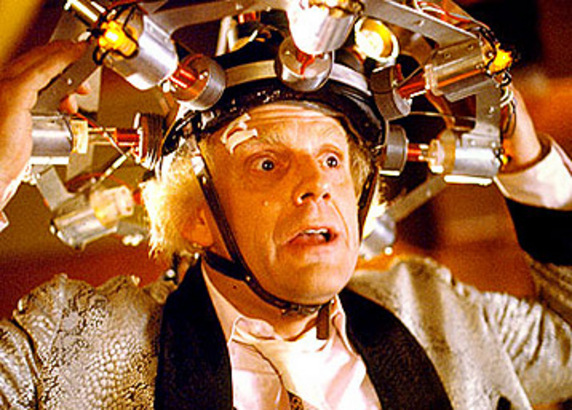You have to feel sorry for Wharton’s Michael Sinkinson. An assistant professor of business economics and public policy, Sinkinson was voted among Poets&Quants’ top 40 professors under 40 for 2014. Wharton students describe him as “engaging,” “dynamic,” and “responsive.” And he is revered for getting to know his students personally, even taking them out to lunch.
So it had to be humbling for Sinkinson, just a few years older than his students, to learn his pupils didn’t always respond to his charm and concern. In the latest Wharton Follies, Sinkinson, ever the good sport, read aloud his critics’ biggest gripes, ala Jimmy Kimmel’s “Celebrities Reading Mean Tweets.”
“All I learned from Professor Sinkinson was how to bundle boring with difficult and to charge the price of an LT.”
“Prof Sinkinson acts all down with pop culture, but secretly thinks Ariana Grande is a font in Microsoft Word.”
“Professor Sinkinson seriously overestimated the demand function for lame jokes. “
Ouch! Tough crowd for sure, but Sinkinson wasn’t the only faculty member to take a beating, with reviews ranging from pissy to petty. One student advised Assistant Professor Corrine Low to head to a lower-tier program to train herself how to teach before returning to the big leagues. Worse, a student pointed out that she supposedly talked and acted like a teenage girl (prefaced, of course, with the ever-damning “not sure how to say this without sounding offensive”). The seemingly-impervious Adam Grant was compared to “a muppet” (Scooter, I assume). And even compliments were ambiguous, with Professor Laura Huang described by one student – who probably scored a 730 on his GMAT – as “tight” (a term that encompasses everything from prudish to socially cool to smoking hot).
TEACHER EVALUATIONS GO PUBLIC (AND GET PERSONAL)
Alas, such student reviews are generally private…unless you head to Rate My Professors. Think of this site as the precursor to Glassdoor, where wronged employees rail against the drunks, degenerates, and do-nothings who manage them. On Rate My Professors, students can even scores with instructors who wasted their time on tangents, mangled their GPAs with arbitrary criteria, treated them like lepers or preschoolers, or humiliated them when they’d dare question an assertion. They also can, of course, exact some sort of revenge for a lower-than-expected grade.
“Idiot,” “Prick,” “Satan.” You’ll find labels like these attached to business professors in the most prestigious undergraduate and graduate programs. Usually, student resentment stems from the same root causes. The content isn’t relevant, nor is the delivery succinct. Faculty members come across as aloof or snooty, giving off the impression that research, not students, is their number one priority. Some race through volumes of content, leaving students to fend for themselves (as if that’s the best way to prepare them for the real world). Of course, you’ll always find those professors who revel in tricking students, often applying conflicting or unclear expectations.
That said, you’ll consistently find business professors averaging scores of 3.5-4.5 (on a 5.0 scale) with Rate My Professors. But it only takes a couple of self-serving sophists to start a backlash. Under the guise of anonymity, many jilted students aren’t holding back.
Some offer helpful observations like “class material is irrelevant for tests and assignments” or the “textbook is a incomprehensible nightmare (“700 pages of nonsensical babble” to be exact). Sometimes, students hit sore spots (“She uses her classes to sell her book” or “I doubt he spent more than 10 minutes preparing for class”). As you’d expect, you’ll find plenty of ad hominem personal attacks, exemplified by this pithy observation: “She is very condescending, a little crazy, and disorganized.”
Between the half-hearted counsel and quasi-libelous attacks, you’ll occasionally find witty similes and anecdotes that drive home the point: The consumer isn’t happy. The return falls short of the investment in tuition. And students have a voice – and a platform – for everyone to hear. In other words: Tread carefully.
Are many of these mean comments fair? Probably not. Do they trade on our worst instincts? You bet’cha! So why are we writing about them? Simple: They’re funny as hell. Even more, they illustrate how students perceive their experience – and where business schools may be failing their students. If talent dines on strategy and character is destiny, then self-awareness is a first step. So from adjuncts to tenured faculty and undergrads to executive students, here are the some of the most entertaining and devastating critiques leveled by students at their business schools:
The Worst Comments
John Percival, Wharton, (2012): “This guy thinks he’s a stage actor. Sitting through one of his lectures is absolutely painful. I’m not kidding, it’s like watching a terrible high school play. I can only listen to him say the same things over and over again and end most of his sentences with a gravely “aaahh” so many times. I really wish he would teach instead of act. He sucks.”
Roger Mesznik, Columbia (2010): “Roger Mesznik is a smart man. That said it is a terrible teacher. An afternoon on wikipedia enlightens one more. He likes to make topics interesting by sharing esoteric anecdotes that are only impressive to the juvenile. A nice guy whom I would love to have a lunch with aside, the man is an expensive fun fact dispenser. Thank god for the textbook.”














Questions about this article? Email us or leave a comment below.